
Richard Wayne Penniman, known professionally as Little Richard, was an American singer, pianist, and songwriter. He was an influential figure in popular music and culture for seven decades. Described as the "Architect of Rock and Roll", Richard's most celebrated work dates from the mid-1950s, when his charismatic showmanship and dynamic music, characterized by frenetic piano playing, pounding back beat and powerful raspy vocals, laid the foundation for rock and roll. Richard's innovative emotive vocalizations and uptempo rhythmic music played a key role in the formation of other popular music genres, including soul and funk. He influenced singers and musicians across musical genres from rock to hip hop; his music helped shape rhythm and blues for generations.

James Lee Keltner is an American drummer and percussionist known primarily for his session work. He was characterized by Bob Dylan biographer Howard Sounes as "the leading session drummer in America".
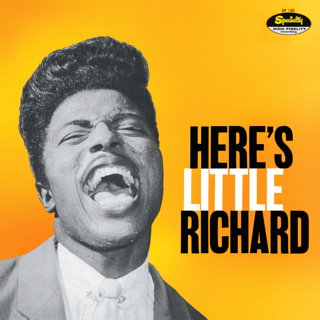
Here's Little Richard is the debut album by American musician Little Richard, released on March 4, 1957. Promoted as "six of Little Richard's hits and six brand new songs of hit calibre", the album compiles many of the A-sides and B-sides from Richard's hit singles including the Billboard top 40 entries "Tutti Frutti", "Long Tall Sally", "Slippin' and Slidin'", "Rip It Up" and "Jenny, Jenny" and the top 10 Rhythm and Blues Best-Sellers hits "Ready Teddy", "She's Got It" and "Miss Ann".
Lenny Waronker is an American record producer and music industry executive. As the president of Warner Bros. Records, and later, as the co-founder and co-chair of DreamWorks Records, Waronker was noted for his commitment to artists and his belief that "music, not money, was still number one."
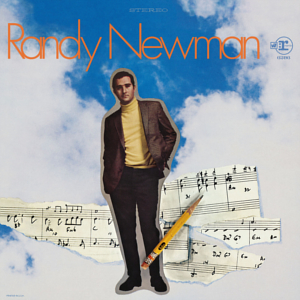
Randy Newman is the debut studio album by American singer-songwriter Randy Newman, released in 1968 by Reprise Records. The album is sometimes referred to as Randy Newman Creates Something New Under the Sun, written on the reverse of the album sleeve. Newman had been a noted songwriter for some years prior to the release of his debut, which was advertised as sounding "like a greatest hits". In contrast to his later albums which usually feature Newman and his piano with a rock backing, Randy Newman is highly orchestral.

"Tutti Frutti" is a song written by Little Richard and Dorothy LaBostrie, recorded in 1955, which was his first major hit. With its energetic refrain, often transcribed as "A-wop-bop-a-loo-mop-a-lop-bam-boom!", and its hard-driving sound and wild lyrics, it became not only a model for many future Little Richard songs, but also for rock and roll itself. The song introduced several of rock music's most characteristic musical features, including its loud volume, powerful vocal style, and distinctive beat and rhythm.
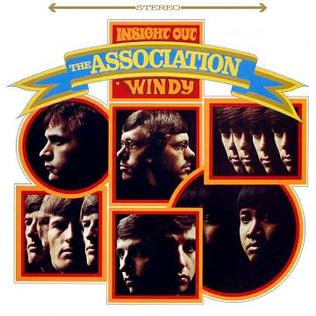
Insight Out is the third album by the American pop band the Association and was released on June 8, 1967 on Warner Bros. Records. It was the band's first album release for the Warner Brothers label and it became one of the top selling LPs of the year in America, peaking at number 8 on the Billboard Top LPs chart and being certified gold by the Recording Industry Association of America. Critic Richie Unterberger has attributed much of the album's success to the inclusion of the U.S. hits "Windy" and "Never My Love", which reached number 1 and number 2 on the Billboard Hot 100 chart respectively and were among the most-played records on AM radio during the late 1960s.
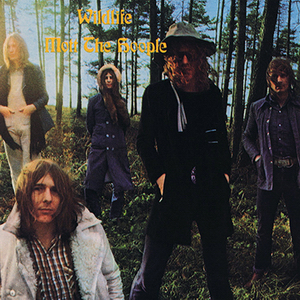
Wildlife is the third album by the British band Mott the Hoople.
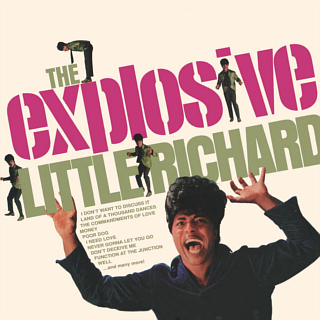
The Explosive Little Richard is the first album by Little Richard for Okeh Records, produced by his long-time friend Larry Williams and Johnny "Guitar" Watson. The songs reflect the then-popular soul and Motown musical styles; no tracks were written by Richard.

Little Richard's Greatest Hits - Recorded Live! is the second and last album by Little Richard for the Okeh label. A live album, it was recorded in the CBS Studios at Hollywood.
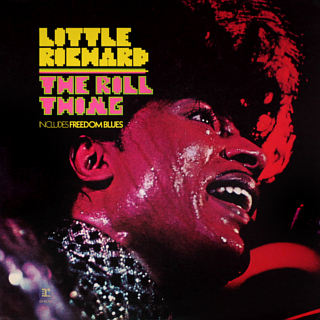
The Rill Thing is Little Richard's first album for Reprise Records, released in August 1970. It was considered a comeback album for Richard, following a three-year hiatus on new albums and an acclaimed performance at Atlantic City Pop Festival. The album utilizes a soul-influenced sound and contains Little Richard's biggest post-Specialty single in "Freedom Blues", which broke the Billboard top 50. The follow-up single, "Greenwood, Mississippi" made the top 100 and number 56 on Cashbox Black Singles. Despite the success of the singles, the album failed to chart.
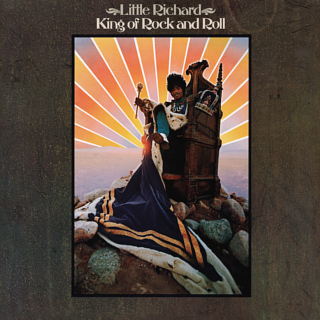
The King of Rock and Roll is an album by Little Richard, released in 1971. It was his second album for Reprise Records. It was rereleased as part of the King of Rock and Roll: The Complete Reprise Recordings set.

The Second Coming was Little Richard's third album for Reprise Records, released in 1972. The album saw him reunited with Robert "Bumps" Blackwell from his Specialty days, with them co-writing the majority of the album together. The concept was to unite the best rock studio musicians of the '50s with the best rock studio musicians of the '70s. The album failed to chart.
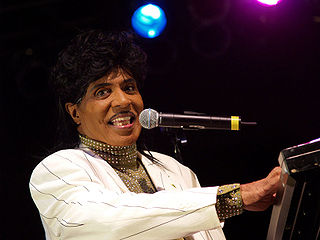
This page is a discography for American musician Little Richard (1932–2020). Described as "the architect of rock and roll", Little Richard was a pioneering singer-songwriter whose career also encompassed rhythm and blues, soul, and gospel. He began his recording career in 1951, signing to RCA Victor, releasing his first singles, and his first album in 1957, although he released his last album in 1992, he continued to tour into the 21st century. He attained international success after signing with Specialty Records in 1955.
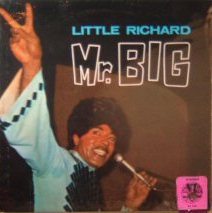
Mr. Big, released in the middle of his Reprise Records period, was another compilation of Little Richard's mid-1960s recordings for Vee Jay Records, released on the UK Joy label. None of the tracks had previously been released on an album - many had been released on singles in 1965, the rest were previously unreleased. A later album with not only the same name, but also the same cover was released for the US market in 1974 with different tracks. . Another similar release came in the form of Talkin‘ ‘bout Soul, also in 1974, with one previously unreleased track and stereo versions of released single sides.

Double Trouble is the fifteenth soundtrack album by American singer and musician Elvis Presley, released by RCA Victor in mono and stereo, LPM/LSP 3787, in June 1967. It is the soundtrack to the 1967 film of the same name starring Presley. Recording sessions took place at Radio Recorders and at Metro-Goldwyn-Mayer studios in Hollywood, California, on June 28, 29, and 30, 1966. It peaked at number 47 on the Billboard 200.

Soul Zodiac is the first collaborative studio album by the Nat Adderley Sextet and Rick Holmes, presented by Julian "Cannonball" Adderley. It was released in 1972 through Capitol Records. Recording sessions took place at Independent Recording Studios in Studio City, Los Angeles, California with production handled by David Axelrod and Cannonball Adderley. The album features narration from Rick Holmes on all tracks and contributions from the sextet: Nat Adderley on cornet, George Duke on Fender Rhodes electric piano, Walter Booker on string bass and guitar, Roy McCurdy on drums, Mike Deasy on guitar, and Ernie Watts on flute, tenor saxophone, and tambourine, with guest appearance by Cannonball Adderley on two songs.

Lifetime Friend is an album by Little Richard, released in 1986 and his first since the release of God's Beautiful City in 1979. Following that album's release and some 1981 recordings, backing tracks of which were used for TV appearances, Richard had made no recordings while he continued his career in the ministry. Following the release of his autobiography, The Quasar of Rock and Roll, in 1984, Richard reemerged in the public eye and had begun to be recognized for his contributions to popular music as one of the founders of rock and roll music.
"Jenny, Jenny" is a 1957 song written by American musician Little Richard and Enotris Johnson and recorded and released by Little Richard. It was featured on Penniman's debut album, Here's Little Richard and peaked at number ten on the US Billboard Hot 100 and reached number two on the Hot Rhythm and Blues Singles chart.

Kiss of Life is the debut solo album by American singer-songwriter Siedah Garrett, released in 1988 on Quincy Jones's Qwest Records label.


















